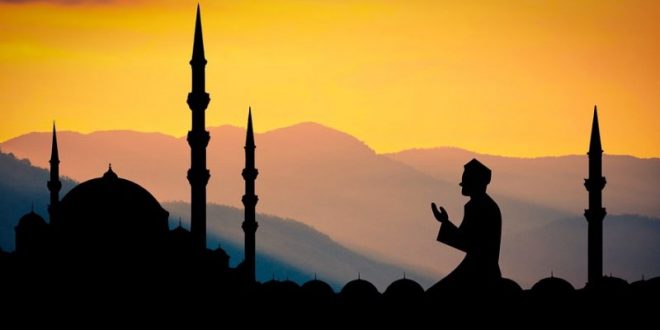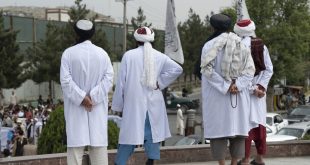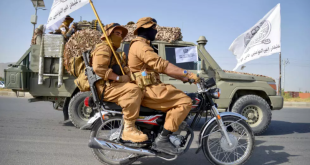Over two billion Muslims and non-Muslim Arabs greet each other with the Arabic word Assalamu Alaykum (peace upon you) in different continents of the world several times a day. This ubiquitous salutation of peace has become an important part of continuous uhucommunication among different cultures in the world today. Practicing peaceful actions may not necessarily accompany these beautiful words as we conduct our daily activities during good and bad times.
The holy month of Ramadan has a special religious significance for the followers of Islam around the world. Fasting is the fourth pillar of Islam where people abstain from eating/drinking during the daylight hours during this holy month. Ramadan is a time of spiritual reflection, self -improvement, asking for forgiveness and devotion to faith and worship. Ramadan is about self-discipline towards understanding human limitations and it is about empathy, to put oneself in the shoes of another, especially those who may be less fortunate materially. This special month is about showing generosity by reaching to others in the spirit of giving.
Also, the humanistic philosophy of this great month has a special meaning of sacrifice, empathy, peace, reconciliation and practicing the great Islamic/humanistic virtues that are important for a peaceful world today. Human virtue is defined as behaviors that show high moral standards. A virtuous person is the one who possesses moral excellence. Human virtues have been the subject of discussion among different faiths, peace organizations and civil societies. Human virtues constitute a universal bond we share with others when we think about peace and social justice. Let us discuss a few of these human virtues that are important towards a peaceful life today.
Honor: Respecting all people regardless of their possessions, positions, status, ideas and similarities and differences. In order to receive honor, we should give honor to others first. Honor is earned by virtue of our actions.
Compassion: This virtue requires us to step out of our own comfort zone and reach out and touch the heart of another person in pursuit of greater good. When we put our good heart in action behind our passion, it becomes compassion.
Respect: Respecting other people is an invitation to self-respect. It is so easy to respect others who share similar values wit us. Unconditional respect towards those who are different and who may not share the same values with us is even a greater virtue.
Courage: This virtue calls us to free ourselves from fear by practicing the underlying principles and values we cherish regardless of circumstances. Our courage serves as the tool of justice behind every malice. In order to uphold the principle of courage, we should be willing to sacrifice momentary gains and conveniences. Compromising this virtue suffocates our moral aptitude at the core and makes us coward.
Forgiveness: It is easy to take revenge against a wrong deed by committing another wrong action. The great Mahatma Gandhi stated, if we go an eye for an eye, we will soon have a blind world. To forgo retaliation in favor of forgiveness is a superhuman act of compassion.
Humility: Dedicating oneself to the service of others with a great deal of humility, without seeking recognition and reward is a pious act.
Kindness: An ounce of kindness brings a ton of goodwill. A gracious smile and a genuine desire to help others is a simple human virtue that brightens the gloomy chamber of every heart.
Commitment: Showing loyalty and dedication with excellence to everyday endeavors is a rewarding virtue. Commitment demands accountability.
Patience: This virtue reflects our capacity to tolerate ambiguity and uncertainty without getting angry. It is a gift that few of us have.
These virtues help enhance our sense of humanity towards other people. practicing these virtues through peaceful actions bring tranquility and harmony in relationships. Our altruistic individual behavior will have a philanthropic societal impact that can result in peace.
What is Peace? Peace is the presence of harmony, tranquility and over all security within a society. According to peace scholar, Johan Galtung, peace is the absence of; direct violence (military and terrorism), indirect violence-structural violence (poverty, discrimination and corruption) and cultural violence (ethnic strife, lack of respect for other religions, identity politics and regionalism). This is a very comprehensive definition of peace. Peace on the very basic or micro level starts within an individual. Peace of mind, peace of heart and peace of spirit should serve as basic human attributes, especially during the holy month of Ramadan.
Peace and Hierarchy of Human Needs: Human beings have a set of universal needs. Abraham Maslow, a renowned psychologist has discussed the hierarchy of human needs which has a direct correlation with the definition of peace. I will only discuss three categories of these needs.
Level 1. Basic Needs of Survival: Human beings have the need to meet their basic needs such as hunger, thirst and shelter. Deprivation of these basic needs is a form of violence and serves as an obstacle towards a peaceful life. The holy month of Ramadan is an opportunity to develop empathy towards the plight of those who do not have enough to eat and a place to live. Our human conscience should guide our actions to bring relief to our neighbors in need.
Level 11. Safety Needs: It is the fundamental right of every citizen to live free of any kind of threat to life and property. Acts of terrorism, criminal activities and hate crimes are in gross violation of human rights which threaten the physical and psychological well-being of citizens.
Level 111. Belonging Needs: An individual is part of a family, community and the nation. He/she has responsibilities to help family, function as an active member of the community and participate on the national level to help move the country towards peace and prosperity. In order to help others, it is important to help oneself by establishing a healthy balance between body, mind and spirit. This promotes good health which is essential towards a peaceful co-existence in society. During the holy month of Ramadan, community activities towards greater good is essential.
The holy month of Ramadan is an embodiment of those great human virtues in practice. This holy month is a time of reconciliation and empathy towards a greater understanding of peace and the spirit of brotherhood/sisterhood. Peace on the micro-level starts with a healthy individual and becomes part of a community on the mezzo-level. It is the test of human resilience to resist the demons within, the devil without and cleanse one-self from the dark forces of hate, division and prejudice. The holy month of Ramadan is a period of seeking higher human status by practicing the best human virtues.
This great nation of Afghanistan belongs to all. The political leaders, elected representatives and those in position of power and wealth have immense responsibility to serve as role models towards peace, prosperity and social justice. If it takes a village to raise a healthy child, it takes the entire nation to stand up and make a firm collective commitment towards peace. In order to take this giant collective leap forward, we should first invite peace to our individual hearts during this holy month of Ramadan.
Dr. Matin Royeen is an Afghan American educator in the United States. He can be reached at: [email protected]
 Afghanistan Times
Afghanistan Times




